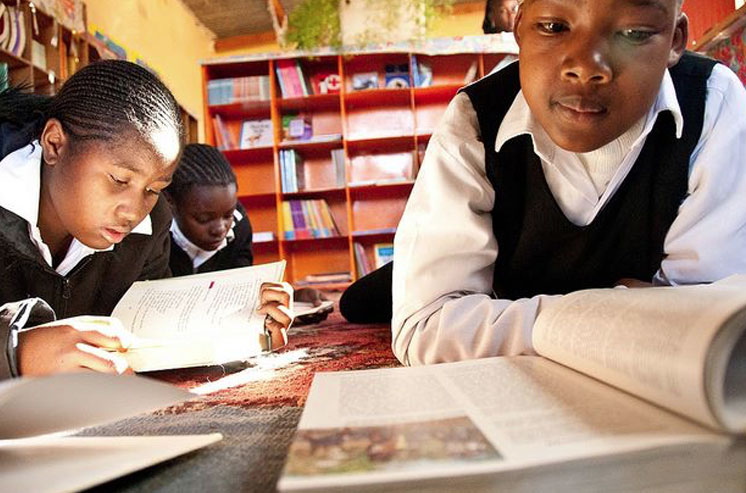Guest blogger and assistant librarian for the University of Malawi-Chancellor College, Jessy Mphunda shares her story with African Library Project.
I am Jessy Mphunda, Assistant Librarian for the University of Malawi-Chancellor College. I have worked with the African Library Project as a Malawi Partner since 2012, first when I worked for the Malawi Institute of Education, now as I work with Chancellor College.
From the beginning, ALP has been committed to promoting literacy, i.e. reading, writing, and critical thinking, through the establishment of small libraries in rural communities in Ghana, Malawi, Kenya, Botswana, Sierra Leone, Swaziland, and Lesotho.
In Malawi, as in other African countries, local publishing is very poor, and we are forced to rely on materials printed abroad, which are very expensive. It is a challenge to convince communities that they need libraries when they have trouble even feeding themselves. But literacy cannot be achieved unless we have books and other resources for people to read. ALP has filled the gap by providing libraries, particularly in rural areas where people have nothing to read except perhaps for a Bible or Quran.
Of course, it does little good to just dump books onto people, as some other donors have done in Africa. ALP ensures that their libraries will be sustained by establishing criteria that schools must meet before the books are cleared at the port or distributed by the African partners. ALP’s African partners vet each library applicant to evaluate readiness and commitment. Each site must have in place a library committee composed of community leaders to promote and oversee the library. There must be space for books where they can be secured, and rules to guide the management of the library.
ALP also requires that at least one teacher-librarian from each site must be trained. Participants learn how to teach those who are illiterate or have limited literacy skills to make use of the of a library. In addition to learning how to teach reading, the teacher-librarians are taught to use storytelling, drawing, quizzes, simulations, games, and films. It is very rare in rural Malawi to find any library that is managed by such well-trained personnel.
Over the years, the books that ALP volunteers have collected have started 342 libraries in rural schools and communities in Malawi. Those libraries have positively changed thinking capacity and improved literacy levels of the people, thereby helping them to excel and change their lives. As an example, in Chichiri Secondary school, pass rates in the Malawi Junior Certificate Examinations had always been very low before the school had an ALP library. After the school received an ALP library, the pass rate increased to 98%.
The African Library Project is doing commendable work in improving literacy levels in rural Africa. Its work has long term value because the libraries it puts in place can be used over and over again by many generations of future students.
Start Your Own Book Drive
Read our Book Drive Guidelines to learn all you need to know to collect, sort, pack and then mail your books to our warehouse, where they will be containerized for shipment to Africa. Your goal is to collect 1,000 appropriate books and approximately $500 for shipping and related costs. Double this and you can start two! Triple it and… you get the idea. To get ideas from other book drives — how they’ve collected their books and raised their funds.
We ship books all year round. Our typical calendar is:
- Ghana in February
- Botswana in March
- Malawi in June
- Kenya in July
- Uganda in August
- Lesotho in September
- Sierra Leone in October
- eSwatini (Swaziland) in November

